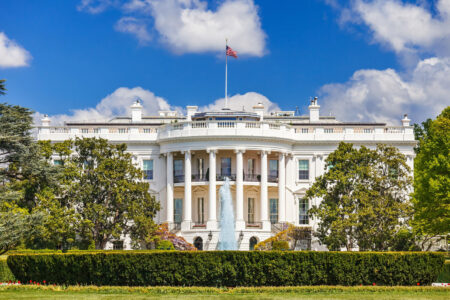In a recently published report, a group of British lawmakers has recommended regulating Bitcoin, Ether, and other digital assets like gambling. Cryptocurrencies are susceptible to abuse by fraudsters and pose a significant risk to consumers, with no intrinsic value.
Since the end of last year, the British Treasury (HM Treasury) has been working on a comprehensive plan to regulate crypto activities. The framework began in December with stablecoins and is now expected to be extended to conventional cryptocurrencies. A consultation phase was initiated in February, which was completed two weeks ago. The British House of Commons' Finance Committee now opposes the ambitions to regulate the area. Regulation as a financial activity would give the industry legitimacy, although crypto trading should be treated more like gambling according to the group.
Cryptocurrencies merely a speculative object
The Finance Committee's report begins with two brief sentences on the potential use cases of blockchain technology. These may exist in cross-border payments and in countries with less developed financial sectors. However, how much these technologies can improve financial services is completely unclear. For the Finance Committee, the significant risks posed by cryptocurrencies are much more important. Thus, "uncovered" crypto assets pose a significant risk to consumers due to their volatility. In addition, cryptocurrencies consume vast amounts of energy and are used by fraudsters for money laundering, according to the report.
The British House of Commons' Finance Committee fears that the regulation of crypto activities would trigger a "halo effect" among consumers. This cognitive bias would make people believe that dealing with cryptocurrencies is safer than it actually is. Therefore, the authors of the report strongly recommend regulating the trading and investment in crypto assets as gambling rather than financial activity. This would correspond to the principle of "same risk, same regulatory outcome."
"Uncovered crypto assets have no intrinsic value, and their price volatility exposes consumers to the potential for significant gains or losses, while serving no useful social purpose. These characteristics are more akin to gambling than a financial service - an impression that is reinforced by the consumer behavior data available to us." - Finance Committee of the British House of Commons
Questionable stance of the Finance Committee
Some of the interest groups in the UK responded extensively to the harsh report of the British lawmakers. CryptoUK, a five-year-old self-regulatory organization with over 155 members, vehemently disagreed with the comparison to gambling and outlined a number of other use cases of the technology. Ultimately, the organization is both concerned and disappointed about the claims, which are not helpful, false, fundamentally flawed, and unfounded, according to a public statement. CryptoUK summarizes the application areas as follows:
- Payments - The report highlights how crypto assets enable lower costs and highly efficient cross-border payments and real-time payments.
- Supporting the "Unbanked" - Availability of secure and efficient peer-to-peer payments, enabling broader financial inclusion and giving the global population without a bank connection the opportunity to control how and where they transfer their assets.
- Institutional Adoption - The crypto sector continues to evolve, and as the use cases for the technology grow and mature, so too will the opportunities continue to develop and be adopted by users and institutional market participants.
- Tokenization - The report does not mention the tokenization of financial products. This was explicitly highlighted as one of the main advantages of the technology during the hearing. The ability to map financial products such as bonds and shares on a blockchain brings a number of advantages, including faster settlement times, the abolition of intermediaries and thus a reduction in costs, new access to markets, higher liquidity, and automation through smart contract technology.
- 24/7/365 - The established financial system does not operate within 24/7/365 parameters and yet aims to serve the global internet economy. Crypto assets and the underlying technology offer the only viable alternative to supporteconomic growth in the information age. Assets need to move at the speed of information, and the non-recognition of cryptocurrencies as the only medium that can support this paradigm will lead to significant competitive disadvantages when it comes to innovation.
The comparison to gambling is therefore fundamentally incorrect and does not do justice to the nature, purpose, and potential of the crypto industry. The crypto industry offers a broad and diverse range of financial services, including investment instruments and transaction mechanisms, and should be regulated accordingly. This would correspond to the regulatory approach around the globe, as highlighted by the recent adoption of the MiCA framework in the EU.








